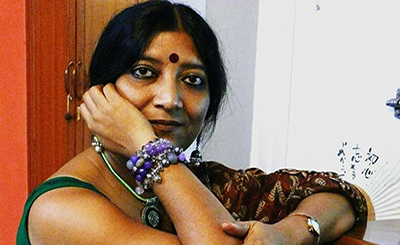We don’t know the trains are suspended when we wake and rise to pray. We turn eastward and raise our hands until they are even with our ears-palms out: “God is Great,” we say. Light spills over the train station facing us onto the still empty square between us and trickles down into the submerged passageway where we slept, bringing us life and consciousness. We progress through the forms of prayer, and, for a moment, I am back in Damascus, with my parents and my sister, before the bombings began.
We finish and wander through sleeping bodies strewn about the concrete floor of the subterranean passage to a nearby shop to buy bread, and I want Laban Arabi, which is yogurt made from goat’s milk.
“You won’t find it in here,” My older brother Tariq says, because he always tells me what he thinks and because he thinks he knows everything. Tariq is the king of those who think they know everything.
“I know,” I say, but I don’t know and neither does he. “It doesn’t matter, It’s not that important. But still...”
“But still, we are in Europe, you won’t find it.”
“... I’ll just have a look.”
“Be quick, we don’t have much time.”
“Of course,” I say, “I know that,” because I must let him know that I know what he knows.
Inside, I wander towards the dairy section and hear the gentle hum of the refrigeration motors keeping cool the rows and rows of Laban Baqari, which is yogurt made from cow’s milk, but there is no Laban Arabi, and worse than another morning without the wistful taste of my childhood breakfast of choice, I have to admit that I am wrong. Tariq finds bread and pays the cashier, then calls for me and I meet him at the front of the store just as two men enter speaking our native Arabic. We stop and listen.
“It’s not true,” exclaims one unto the other, through heaving breaths. His hair is black and oily, it shimmers under the cold lights like the feathers of a raven and stands in an unruly mound upon his head, all of the color has drained from his cheeks and his forehead is dotted with sweat. He produces an envelope from his back pocket and slaps it against the palm of his opposite hand. “I have a ticket, why would they sell me a ticket?”
He turns and hurries out the door. I start to follow him, but my brother puts his arm across my chest and asks the man who remains what is happening.
“The trains are suspended,” he says. “No more trains to Vienna.”
“But we have tickets,” Tariq says.
“That’s what he said,” and he points towards the door.
“But they can’t do that,” my brother says, incredulously, his voice is deliberate and confident. “Can they do that?” he asks out loud, but the question is intended only for himself.
“It’s done, see for yourself.”
I open the door and step outside; sirens wail in the distance and when I look toward the imposing facade of Budapest’s Keleti train station, I see a growing crowd, from which the resounding cries of injustice are increasingly audible. “Come,” my brother says, grabbing my shirt sleeve. We run towards the decaying edifice and the increasing mass of protesters.
At the edge of the pulsating crowd, Tariq thrusts our loaf of bread into my chest and forces his way into the madness. I stay back and observe terror etching its way across the weathered faces of those arriving to protest. I catch a glimpse of my brother and he is not afraid; he is never afraid; he is the king of fearlessness. Blood courses through blue veins protruding from the surface of his sun-soaked neck and he clenches his jaws firmly as he works his way closer to the police barricade blocking the entrance. I can’t pick out his voice among the shouting, but I know his argument: We are seeking asylum from war, you cannot make us stay, we have rights... all of which are true.
The sun rises higher and the growing crowd swells such that I am no longer on the edge; I look at my watch and realize that the first train should have left already and there should be a train departing for Vienna every hour hereafter but the great station looming in front of us is empty. I turn and walk downstairs into the underground crossing where Tariq and I slept the night before. I slump against the wall next to our possessions and listen to hungry babies crying, patient mothers shushing, determined commuters marching; above ground I hear public transport vehicles coughing, helicopter blades pounding, and above it all, migrants pleading.
***
Tariq wakes me, “Alem, Alem. How can you sleep?”
I force my eyes open and see him breaking our bread. “We have been traveling by train and foot and hitchhiking for eight weeks; I am tired. I can sleep.” I lean my head forward into my hands and breathe in the stuffy air of the busy passageway.
“You can sleep anytime, anywhere,” he says. “You are the king of sleep.”
“What did you learn about the trains?” I ask.
“Nothing. The police won’t say anything. They don’t speak English or German; they don’t even look into our eyes.”
“Did you try speaking to them in Arabic?”
“I cursed them in Arabic.”
“Do you know why the trains are terminated?”
He shrugs and hands me a piece of bread. “Why do you think? We are migrants, we are many... no one wants us.”
I bite into the bread; the interior is soft and porous, but the crust is thick and crunches between my teeth. “The bread is good.”
“It is good bread,” Tariq agrees. “But not so good that I want to stay.”
“You think it is serious?” I ask.
“Brother, it is serious,” he says while sitting down and folding his legs. “We cannot stay in Hungary. We don’t know anyone. Look around, we don’t want to stay here.”
“We’ve come so far.”
“Maybe we should have stayed in Syria. Maybe it was a mistake to leave.”
“The bombings were getting worse.”
“Were bombs worse than the camps we will move to if we don’t get out of here?”
“The bombs were worse,” I say. “I’m sure the bombs were worse.”
When a bomb fell in Damascus, a sharp crack would interrupt the busy white noise on a swarming street, followed by a blast that would shake the very air you breathed and then a plume of smoke would jettison from the targeted structure; the cloud, initially sharp and defined, would quickly unfold into a viscous wave that washed over you, tangibly opaque. Whenever I witnessed a bombing, my initial thoughts were shaped by what I had considered important just before the blast. “I’ll be late to school,” I would think, until the subsequent screams of panic and terror and scrambling feet replaced those thoughts with the gravity of the situation, and I would later contemplate how I was king of the self-absorbed, because, in the presence of death and destruction, I was annoyed before I panicked, or even before I grieved.
“What then, should we do?” I ask my brother.
“We should find more to eat; the bread only made me hungrier.”
“And we should find a postcard.”
“You don’t need a postcard, Alem.”
“It is for mother. I promised.”
Tariq stands and I rise too and brush the dust from my trousers. He turns and we begin to walk; the differences between us are apparent even in our steps. My steps are light, indecisive and appear clumsy next to his; he moves with the confidence of one who walks through walls.
“Where will you send the postcard?” Tariq asks.
“To our parents, like I said.”
“But where?”
“To the address they provide when they are settled.”
He nods and says nothing more, which is more concerning than if he had just said what he believed to be true. Tariq never concedes the final word. In doing so, he acknowledges my irrational belief that our parents are fine and settling into a comfortable village sheltered from the war that ravages the rest of our country. They have not written to our family chat for over a week though, almost certain confirmation that they are not fine.
We exit the submerged passageway onto the main square; the morning chill has been replaced by the friendly warmth of the September sun; the station and the protesters are behind us now, cars flow around the great train station in both directions on both sides of the structure. Pedestrians crisscross before me and hurry to work or lunch or to catch their bus. The routines and the habits of society are familiar enough that I reconstruct Damascus as we walk; I see shops with packaged goods and next to them, I imagine busy markets with open crates of olives spilling out onto the street below, and trays of baklava stacked in perfectly symmetrical rows, each one decorated with such care that they are as pleasing to look at as they are to eat. Outside of cafés I envision old men with deep brown, leathery skin, wearing felt hats and loose hanging trousers, drinking acrid coffee from ceramic mugs with sparkling cubes of sugar on saucers; they regale one another with animated stories from the past and I try to listen because I know that the secrets to life and happiness reside within these men. Then I remember that I have only imagined the old men and I wonder if such secrets actually reside in each of us. I see a young girl take an even younger boy’s hand and walk across the street and I think of my sister, Amira, and I think that if she were standing next to me, I would tell her what I was thinking and she would laugh, but not because she would think it is foolish but because she would think it is profound. She would repeat what I said slowly and then she would object to her statement with an opposing idea and then she would contradict her opposing idea with a defense of the original idea and with each new proposal her words would pour out of her mouth faster and faster until I would interject, reminding her that we were just speculating and then she would laugh again, because she knew the limits of humor and she delighted in all things silly and knew that nothing and no one was as silly as herself. Then she would say, “Little brother, I don’t know what I would do without you.” I want to see her soothing smile again and I want to look into her amber eyes that radiated comfort and I want to say, “Sister, what am I supposed to do without you?”
If my father were here, I would ask him instead. He would not answer me directly though; he would invite me to sit down while he boiled water in an electric kettle and as he pulled out two cups, he would ask me to explain my question. I would describe the pain and purposelessness that was swallowing me whole, and he would continue to prepare the tea, nodding occasionally to affirm that he was listening. He would delicately stack the pot, cups, sugar, spoons and milk onto a tray, and he would carry all of it to the table and sit across from me and when I felt that I had explained myself sufficiently, he would pour us each a cup of tea and ask me to tell him more. As I spoke, he would nod and say little, but the pain would ease and while he would never answer my question, while he would never tell me how to fill the emptiness left by the loss of Amira, I would feel a little less empty.
My mother would not indulge us in such a conversation; since Amira’s death, she moved silently from room to room sweeping or mopping or rearranging. Periodically her movement slowed, her eyes fixed on a distant point and then she froze completely and stared into the past. In those moments, my father would put his arm around her and hold her, for she was fragile and if she spoke about her sorrow she would only be crushed. Eventually, she would thaw and go back to work moving the mop or broom back and forth with a rhythmic sense of numb precision, like the second hand of a clock.
She cleaned as though she were exacting revenge on those who took my sister’s life by restoring order to the household they threatened to destroy. The rest of us knew that a home was greater than the structure she wanted to redeem but we remained silent as she methodically cleaned up the dust we brought in, dust that collected upon us as we traversed the city of rubble, and we all hoped that we would be gone when the time came for our building to fall as well.
We were my mother’s greatest joy in life, and she understood each of us. She saw my ability to gather information from the world around me when others only saw my inability to pay attention to the world as it spoke to me. She knew that Amira was destined to make people laugh and she saw that Tariq was born to lead. She used to explain to us that her love for each of us defied logic, which is to say, her love was not divided into three equal parts. She loved each of us equally with all of her love. Her response to Amira’s death also defied logic. When Amira died, my mother did not just lose a third of herself, she lost everything. She withdrew and only resembled herself when the call to prayer drifted into the darkness of our flat and stirred our attention away from ourselves and the temporary chaos surrounding us onto that which is everlasting and immoveable.
Before my sister’s death, the melodic announcement stimulated my intellect; I contemplated God’s greatness and his presence throughout history as I progressed through the different positions of prayer, reciting the comforting words that I’d memorized as a child. Since she died though, those same notes have ignited my emotions and now I feel God’s greatness and his presence throughout history. When we pray, I am reminded that what happened to my sister and what is happening in Syria is not just bad; it is wrong, it is objectively wrong, and it is wrong because it is inconsistent with the character and standard for all that is good, which is God. Prayer reminds me that it is God who will serve justice to those who are waging this war, and when I believe that I no longer feel the suffocating burden of revenge. For this reason, it is the music inviting us to pray, the mysterious arrangement of notes over time rushing through space that I miss more than the crowded markets, the cafes, the olives and the baklava. Without the regular pauses throughout the day, nostalgia blurs the lines between my imaginary Damascus and the European cityscape surrounding me. I am only aware of my hunger for all that is familiar and all that is familial and the ground that is spinning below me. I feel my chest tighten and I struggle to maintain my balance. I stop and place my hands on my knees for support, but even the ground is spinning such, that I cannot stand. I want to hear the call to prayer desperately but all I hear is the white noise of pedestrians walking around me; I fall to one knee and close my eyes.
“Alem, are you ok? What happened? You are dreaming again. Stand up,” I feel my brother’s hand around my arm. You are always dreaming; tell me you are ok.”
My head begins to clear, and I take a deep breath, I nod.
“You are the king of dreaming. It is ok, though. Look, we can eat there,” he points across the square. I nod again and follow him.
We eat falafel and hummus at a Turkish restaurant, which is a hybrid blend of fast food that is already prepared and ready to serve, and fine dining with soft benches, cedar tables, and large glass windows from which we can still see the station’s westward facing facade.
“Let’s discuss our options,” Tariq says, and then slurps trace remnants of Cola from his paper cup. “First, we can stay here, join the others in protest and wait for the train service to start again.”
I fold my arms and tilt my head to the side. “Ok. What else?”
“Now it is your turn. I told you an idea, now you say one, then I will say one again.”
“I don’t know, Tariq.”
“Come on, even if it is stupid. Just say something.”
I fold my arms and roll my eyes. “We register as migrants here.”
“Alem, that is not an option.”
“You said I can say anything, even if it is stupid.”
“It can be stupid, but it must be viable.”
“It is all stupid, Tariq, and nothing is viable. What have we done, brother? We are stuck. I miss home; I miss Amira. I was thinking of her when I fell on the square.”
Tariq stares at me blankly and slowly turns his gaze away, towards the soot encrusted station in the distance, and even beyond.
“I’m sorry. I shouldn’t speak of our sister, not now.”
He exhales and his gaze thaws. “Amira would make us laugh.”
My breath lodges in my throat and an ache awakens in my chest that is too painful to endure, and too pleasant to suppress.
“I miss her every day,” I finally say.
“She was special,” Tariq says. “You were close; you were better friends to one another than I was to either of you and you fought more than I fought with either of you.”
“Sometimes she acted like my mother, that is when we fought. When she acted like my sister, we were best friends.”
“Amira would have been a great mother.”
“That is the real shame. They didn’t just take our sister. They took her future and her children and her children’s future.”
I was on my way home from school when my mother called to inform me of Amira’s death. I declined the call because I was nearly home, and I assumed she was just worried. She always worried about me walking home from school alone, she was the queen of worry, and I was annoyed that she didn’t trust me. She called again and I answered, “I’m fine, Mama.” Then I heard her sobbing and trying to speak but her tears made it impossible to understand what she was saying.
The sun, which had shone so brightly throughout the day, was just beginning to set and it illuminated the residential buildings that lined the sidewalk on which I walked, they glowed orange against the velvet dusk of spring. Children played in the grassy patches between buildings, for the war had not yet reached our neighborhood, and their gleeful bursts of laughter bounced through the buildings. I sat upon a bench and listened as my mother continued to weep; I looked up and saw cherry blossoms and green leaves budding on the branches above; Lilacs were in bloom and their scent was to the already pleasant aroma of spring as sugar is to tea. I wondered how I had landed here. Here, where the end of a day met the beginning of night, the end of winter met the beginning of spring; joy met sorrow, laughter met tears, playing met mourning, life met death. On the phone I heard my mother compose herself enough to say, “Amira.” She whispered it, with finality and spectral delicacy, as though life had escaped her very name. I heard my phone hit the bench on which I sat as I plunged my face into my hands and cried. Sometime later, my father found me and ushered me home.
“We must honor her life,” Tariq says. “If we stay here in migration camps, we cannot honor her, we have to get to Germany where I will get a job, you will finish school, and then you too will find a job. We will make money and find wives and have children who will hear about our sister and their children will hear about our sister and in this way, she will never be forgotten.”
“And we will return to Syria; we will rebuild Damascus and build a park where she died.”
“Damascus is the oldest, greatest city in the world,” my brother says. His voice gains a patriotic edge; he places his hands on the table and leans forward, “Damascus has survived many wars and many battles, she was the first great city to rise and she will she will never be forgotten.”
“Amira’s memory will exist together with Damascus.”
Tariq pounds the table, “Yes, little brother. This is why we flee.”
He leans back and folds his arms.
“Unfortunately, though,” he says, “The trains are out of our control. As is everything, so it seems.”
Tariq was always larger than me. Not physically, but not so abstract that only I noticed it either. His dreams were bigger and his fictions grander, his stories made people stop whatever they were doing and listen, and his threats carried such weight that I believed even the weather honored his requests. When our sister died, he looked vengeful, when we were told to flee, he took charge, and now, in an unremarkable corner of a little-known European capital, he is acknowledging that some things are out of his control. Looking at him across the table as he rolls the empty paper cup slowly in circles on its bottom rim, I wonder if I am watching him descend into the childhood he was too proud to experience or if he is stepping into an adulthood neither of us have yet encountered. Either way, I am as grateful as I am confused that he is inviting me to contribute my opinion.
“Not everything,” I say.
“What then? What remains in our control?” he asks.
“I don’t know, but I don’t believe it is true that everything is out of our control.”
“When you find out what we control, tell me. That will be our way out.”
He slaps the table with one palm, an indication that it is time to leave. I don’t ask why, or where we are going; I stand and together we exit the restaurant.
***
We return to the sunken quarter in which we, along with hundreds of other migrants, reside. Our plight is drawing attention. Aid organizations have set up tables throughout the underground complex, offering food and water. In the center of it all, a collection of blankets and clothes is growing into a mountain. The city has tapped into the municipal water lines and erected fountains; I stop at one and wash my face. In the basin I see my reflection; I am nearly unrecognizable, except that I see my father’s forehead set above my mother’s eyes, which are staring back at me. My hair has grown long over my ears and the patchy spots of my beard are filling in. I splash my reflection, because I don’t want anyone else to see who I have become. Then I remember that no one here knows who I was, and everyone sees who I am. Only I am surprised by who I’ve become.
Nearby, a crowd is gathering. Tariq notices and pulls me away from the fountain. A man, whom I judge to be Tariq’s age, speaking Arabic, says the trains will not be resuming soon and when they do, we will not be allowed on board. He identifies as a migrant, but his clothes are clean and his loosely hanging button down has been recently pressed; a massive watch graces his wrist and his waxed hair shimmers under the white lights. We, along with the others, listen silently as he articulates the desperation each of us feels.
“The world has turned its back on you,” he says. “I can help, though. I have experience transporting people through Europe, your journey can be over tonight.”
Tariq turns to me and whispers, “We have not yet discussed the possibility of going with a smuggler.”
“I don’t like it,” I say.
“Me neither. But we could be in Germany by tomorrow. We should think about it.”
“We can’t afford it.”
“We can ask.”
“It is true, I will ask a premium price from each of you,” says the man with the pressed shirt, as though he is listening to our conversation. “But is any price really too high for your freedom? You don’t want to sleep in this underground passageway for another night. And you shouldn’t have to. You are seeking asylum from war; no one can make you stay here. You are migrants, yes. But you are humans first. And you have rights.”
I lean towards my brother. “It isn’t just the money. This man is constructing a narrative that sounds nice, the words are enticing, and they may even be true, but I don’t think they are honest. What he is offering and what he is requesting are not the same. He does not seem like someone we can trust, and besides, by accepting a ride from him, are we gaining any more control over our situation?”
Tariq looks at me, then briefly looks at the man in the front and then looks at me again. “No,” he says. “This too is out of our control.”
The man has stopped speaking and our corner of the underground is silent except for our hushed whispers.
“Please, brothers, if you have a question you may ask. I have nothing to hide,” the man says.
“No, we have no further questions,” Tariq says, and he folds his arms in front of him.
I, however, am feeling the suffocating weight of the loss of my sister, my parents, and even my nation to corrupt men who tell half truths. Yes, I do have more questions.
“Where did you sleep last night?” I ask.
The crowd looks around at one another and take alternating glances at me.
He takes a step backwards and raises his hands to assure everyone that he takes no offense. Yet he says, “I don’t see how that is relevant. I am simply making you an offer.”
“What exactly are you offering?”
“A ride into Germany. I transport people through Europe, was I unclear?”
“You slept in a clean bed last night, with a full stomach. You are taking advantage of us. You pretend to understand what we are going through; you act as though you want to help us, but what do you know about our journey? You say that you are offering us safe passage to Germany, but you are selling us a place to hide. You don’t want to help; you want to profit. You don’t transport people, you traffic humans. What you are doing is illegal.”
Murmurs ripple across the group as though I am a stone thrown into a pond. Tariq looks at me with wide eyes and his face resembles marble, but I sense a smile hiding just below the surface. My fingers tremble; I shove them into my pockets and stand as tall and straight as I can.
“You should be careful,” the man says, exposing his true character, his voice wavering on the edge of composition. “We do not like to be falsely accused.” Two men standing behind him move towards us and Tariq steps in front of me.
“We are refugees, we do not need to hide,” he says into the crowd. He turns to those surrounding us and says, “Are we criminals? Have we done anything wrong?”
The other migrants face us and step closer, cutting off the aggressors. Some shake their heads in solidarity, and others vocalize his sentiments.
“My brother is right,” he continues, “these men are thieves and anyone who trusts them is a fool. May God destroy their homes,” he says, invoking an ancient Arabic curse as though he is issuing a verdict in the highest court. He is not afraid, and neither am I; we have spoken the truth and we have done so honestly.
Tariq turns and I follow his lead. People step away respectfully and someone cries out, “What will you do?”
Tariq stops and turns towards me. He puts his hand on my shoulder and says, “What do you think, little brother? What will we do?”
“Perhaps,” I begin, quietly, nearly imperceptibly.
“No, Alem,” Tariq whispers to me. “Not perhaps. I did not ask for your recommendation. I am asking you, what will we do?”
I think of my reflection in the fountain, and I realize that Tariq is asking me what we should do now, because he knows who I was, and he sees who I am becoming. I turn away from my brother and face that portion of the crowd following us away from the organizers of this meeting.
Without knowing for sure whether the words in my throat will reach the ears of my listeners, I say, “We will walk to Vienna. We will pack our things and leave tomorrow, after the morning prayer. You may all join us.”
The crowd disperses; some nod to us on their way out, and when everyone is gone, we too return to our belongings. Tariq stretches out on his mat and puts his hands behind his head. I lay down and the lamp above us flickers in the way florescent bulbs do before they die. Locals walk around us, and other migrants sit quietly nearby.
“When did you decide we would walk?” Tariq asks, because he is curious, not because he wants to debate.
“Sometime after lunch,” I say. “I could think of nothing else that we control.”
“Yes, we can walk,” he says. “No one can take that from us.”
We empty our bags of their contents and repack them as we do every night. Tariq believes it is the only way to stay organized. We are out of clean clothes, and Tariq jokes that we will smell so badly when we get to the border that no guards will want to stand in our way. We fold our dirty clothes and repack them. We count our remaining Euros and calculate how much we can spend per day depending on how many days we have remaining.
The busy passageway grows quiet. Tariq and I walk to the makeshift fountains and brush our teeth, then we fill up bottles with water. We walk back to our corner, and I feel eyes upon me. When I look around though, no one is watching. We lay down and I pull out a book. Tariq scrolls through the news feed on his phone, he is silent, and the language of my book pulls me away from my life as a migrant and gently lulls me to sleep…
***
I open my eyes and see many unknown faces looking at me. I reach over and nudge Tariq; he sits up and rubs his eyes. It is dark still; the people surrounding us greet us with reverential nods. They are whispering to one another and slowly one man moves towards us, the screen of his phone facing us. Tariq and I rise and step towards the phone simultaneously. We see an article with a picture of the man who spoke to us the previous afternoon, he is in police custody. We read the opening sentence of the article and learn that 30 migrants joined him last night, they were found dead early this morning in the back of a refrigerated truck at the border. They had suffocated. Others are making their way towards us as well. Tariq and I look at each other, my stomach churns and I want to throw up the remnants of the previous day’s lunch. Tariq places a hand on my shoulder, he squeezes it gently and we turn away from the crowd and face Keleti Station as the sun proclaims its arrival from below the horizon. We lift our hands, palms out, and we proclaim, together in a stentorian chorus with our brothers and sisters in flight, “God is great.”
We finish praying and roll up our mats. We throw our bags upon our shoulders and move through the growing crowd. I see grown men bow their heads in respect, young men stand with folded arms and nod as we pass while little boys stare at us with eyes opened wide as though we are footballers just home from the World Cup.
We arrive at the front of the crowd; Tariq stands on a step and pulls me up alongside of him.
“What happened to our brothers and sisters who traveled with the smugglers last night is tragic,” he begins. “This is why we must look out for one another. My name is Tariq, this is my brother, Amir. We would be happy if you join us in walking to Vienna. We do not promise it will be easy, but we can promise that we will leave no one behind.”
More people arrive and the crowd remains tranquil, a combination of shock from the fate of those who trusted the smugglers, and enthusiasm to leave this place. I hear a noise behind me and look to see a film crew setting up at the top of the stairs.
“We must work together,” my brother continues. “If anyone is hurt, if you think you cannot go on, tell your brother or your sister who is next to you, we will help each other and we will arrive in Vienna, together. Let’s go.”
We turn and make our way up the stairs, and we hear the gentle shuffle of many shoes.
My brother looks at me and his eyes are as full of life as I have ever seen them. We reach the surface, cool air stings my lungs and my legs are trembling from excitement. Keleti Station is behind us, and a grand boulevard stretches out before us. I think of my sister, and how she would shine on this day if she were with us, and I think of my father and the subtle smile that would grace his face, displaying his great pride only to us, and I think of my mother who would put her hands on her hips and beam. Today is different, today we are in control. Today, my brother and I walk side by side, and I believe the differences in our steps are not as apparent as they were yesterday.
(This story was part of May 2021 issue, which was delayed due to the pandemic and released on August 3)
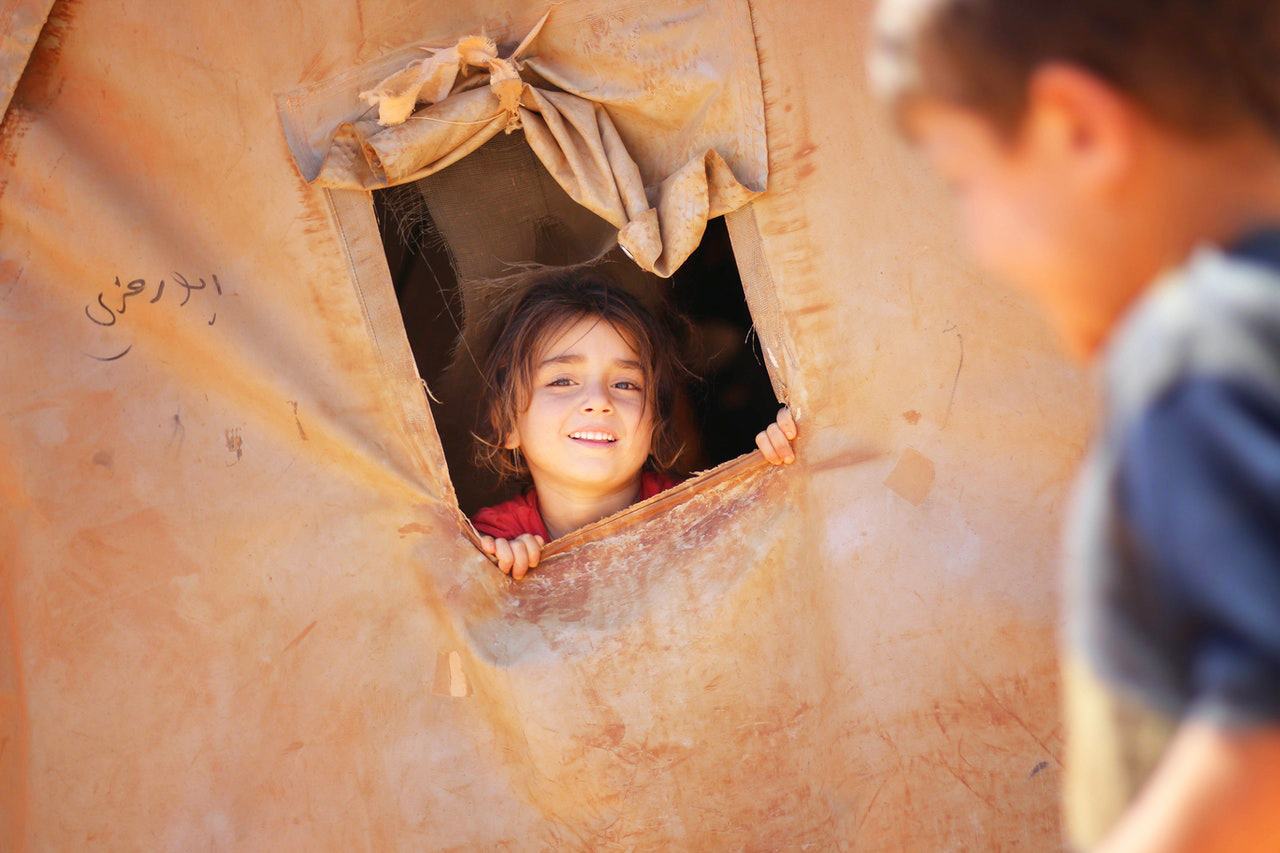



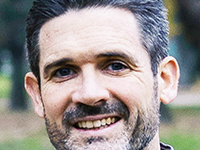
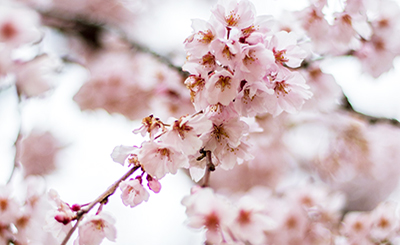
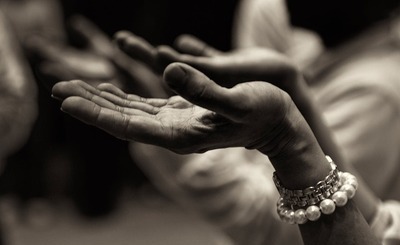
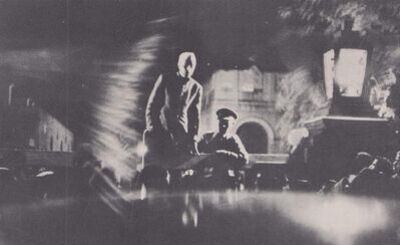
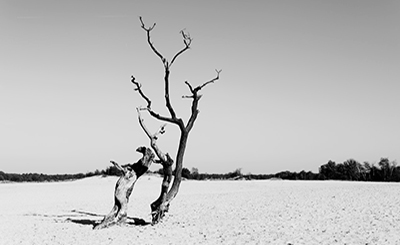

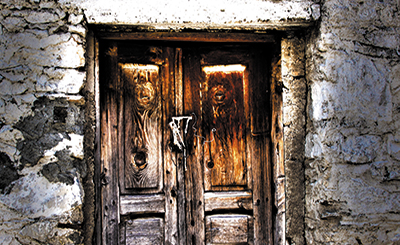
THUMB.jpg)
